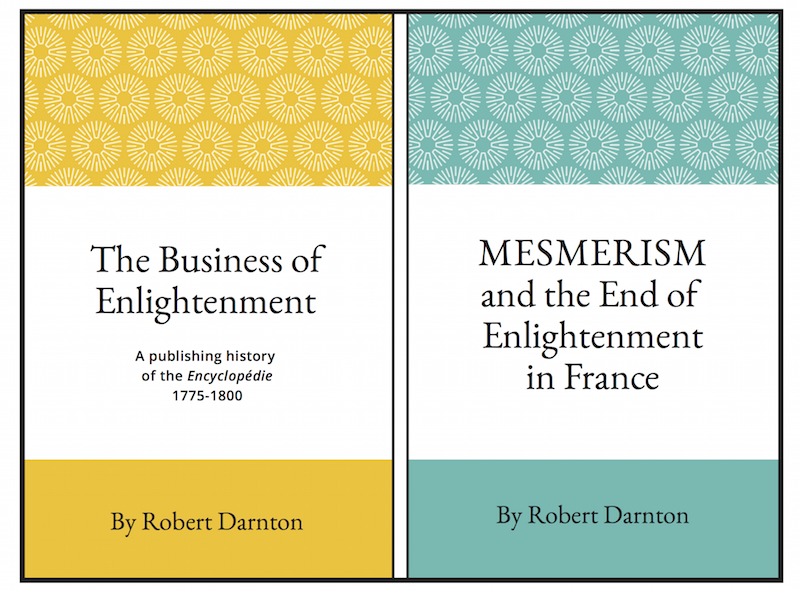We are very pleased to announce that two books by Robert Darnton, The Business of Enlightenment and Mesmerism and the End of Enlightenment in France, are now freely available in their entirety online. Darnton, an Authors Alliance Advisory Board member and an emeritus Professor of History and outgoing University Librarian at Harvard, has, with Authors Alliance assistance, secured the necessary rights to release two of his books under Creative Commons licenses.
We are grateful to have his example leading the way to an “Authors Alliance Collection” of titles made freely accessible thanks to authors’ efforts to recover rights to their work. His experience demonstrates how such rights reversions can work to the benefit of authors, publishers, and the public good. Authors who are interested in joining Professor Darnton are invited to read the Authors Alliance guide to rights reversions or to contact us at reversions@authorsalliance.org to begin the process for themselves.
Thanks to Professor Darnton’s efforts and the assistance of Harvard University Press and HathiTrust, anyone with an internet connection can now find full-text copies of Professor Darnton’s books in the HathiTrust corpus and at the Internet Archive. Professor Darnton’s announcement of the release follows below.
I am making the first two books I published available online and free of charge through the Authors Alliance, because I hope in at least a small way to promote the diffusion of knowledge. They are still in print, but they exhausted their commercial viability long ago. The first, Mesmerism and the End of the Enlightenment in France, was published in 1968. I like to joke that the royalties from it provide me with enough revenue to take my wife to dinner once every three years—if she pays for her half of the bill. The second book, The Business of Enlightenment: A Publishing History of the Encyclopédie, 1775-1800, published in 1979, still attracts quite a few readers, although not enough purchasers to subsidize many evenings in a restaurant. Most authors lose little revenue by making old or out-of-print books available for free on a Creative Commons license. And they gain a great deal: access to readers.
More than anything else, I want to see my books reach new readers. I suspect most authors share this goal, though to be sure, writers who live from their keyboards need to balance their desire to reach readers with their need to make money. More power to them. But most of us, especially in the academic world, care primarily about the circulation of our ideas, and we do not want our books to die after their commercial lives have ended. How can you give your book new life? Make it available with help from the Authors Alliance. Follow the directions in the Authors Alliance guide, Understanding Rights Reversion: When, Why, & How to Regain Copyright and Make Your Book More Available, and have it distributed from an open-access repository—even through the collections offered to the public by the Digital Public Library of America. In doing so, you are not doling out charity. You are ensuring that your work’s continuing impact and relevance are not limited by its commercial life.
Of course, you probably will need to win the agreement of your publisher. I was fortunate in that the Harvard University Press generously agreed to provide the rights needed to publicly release the books online. I feel grateful for this support. At the same time, the HUP may benefit from its generosity, because exposure to the online editions can make some readers want to purchase print copies. A book that sits on a shelf, read by only a few persons with access to that library, will never circulate as widely as an Authors Alliance version of the same text. The ancient printed book may be rediscovered after decades of neglect, but more likely it will be forgotten. Deposit it in an open-access repository, put it within the range of search engines, and sit back with the satisfaction that it will live again as part of the general endeavor to make all knowledge available to all humans.
— Robert Darnton
Share your own success story! If you’ve already used our Understanding Rights Reversions guide to make your work more available, please contact us at reversions@authorsalliance.org. We’d love to hear about it.
Discover more from Authors Alliance
Subscribe to get the latest posts sent to your email.

